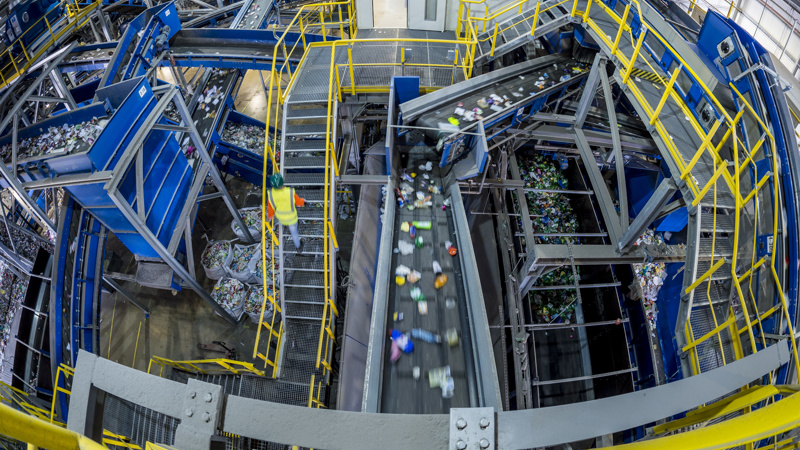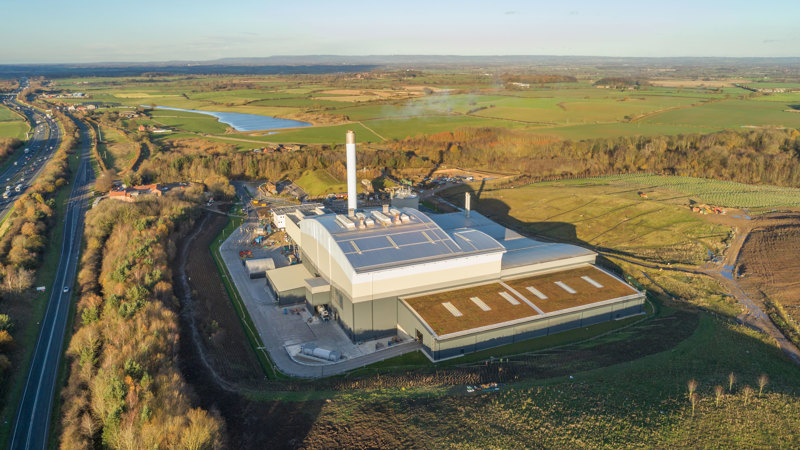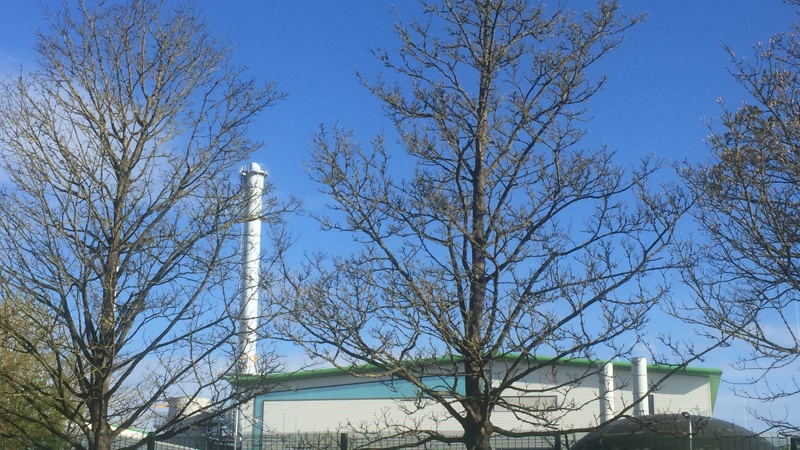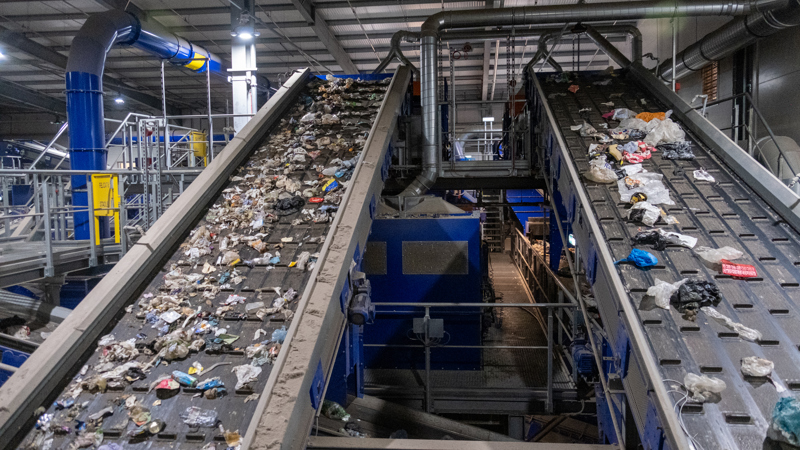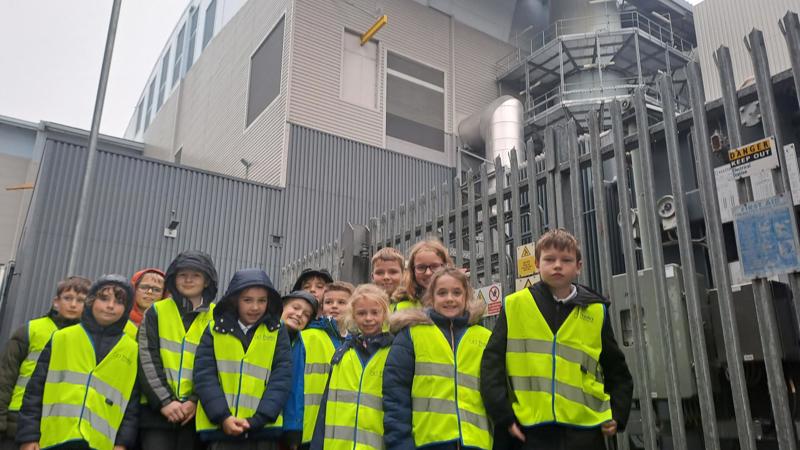Our Operations
Thalia Waste Management has a long-term partnership with Cambridgeshire County Council, delivering its £731million, 28-year waste processing and recycling contract. This long-term contract was let as a Private Finance Initiative project.
Through the contract we operate a number of waste technologies to deal with residents’ household waste, including a Mechanical Biological Treatment (MBT) plant and in-vessel composting facility, as well as operating three waste transfer stations at Waterbeach, Alconbury and March and managing the operations of nine Household Recycling Centres in Cambridgeshire.
Our Waterbeach Waste Management Park is also home to a state-of-the-art Materials Recycling Facility (MRF), which can process mixed recyclable materials from households and businesses. The facility contains a range of sorting equipment and machines, which are able to separate materials including plastics, cardboard, metals and paper.
Eleven different types of equipment – including suction systems, magnets and a glass breaker - are used to sort the materials. Once separated, the different items can then be baled up on site and sent off for recycling.
The MRF can process around 86,000 tonnes of material each year and is helping to further improve recycling rates and keeping the county at the forefront of recycling.
The county's kitchen and garden waste is taken to Waterbeach to be composted. The In-Vessel Composting (IVC) process allows us to compost garden trimmings, fruit, vegetable, meat and fish waste, which is shredded and put into 'vessels' where it reaches a temperature of 60°C (which kills off disease-causing organisms so that it conforms to European Animal By-Products Regulations). Within six to eight weeks soil conditioner is produced that is used by local farmers.
Landfill
Our landfill operation at Waterbeach deals with any waste which cannot be recycled or used to make compost. Landfill is a last resort – our aim is to recycle and make the most of waste wherever possible.
But even when we landfill we’re doing something useful with the waste. By capturing the gases which occur when waste breaks down within the landfill, we are able to produce renewable electricity. The Waterbeach site produces enough renewable electricity to power the equivalent of 3,000 homes.


